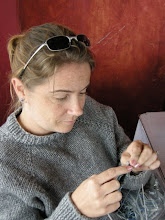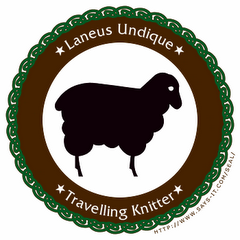 Today I had a really great treat -- I had an interview with the woman who is the head of a local organization here in Cuzco that works to provide artisan producer groups with an outlet to the market where they can earn a living wage. Now, I'm honestly not the biggest fan of fair trade, mostly because it has been poorly implemented by so many groups, unsustainable, notably unfair to many, and distorting to the markets. However, there is such a thing as good fair trade, I'm learning. This might be one example.
Today I had a really great treat -- I had an interview with the woman who is the head of a local organization here in Cuzco that works to provide artisan producer groups with an outlet to the market where they can earn a living wage. Now, I'm honestly not the biggest fan of fair trade, mostly because it has been poorly implemented by so many groups, unsustainable, notably unfair to many, and distorting to the markets. However, there is such a thing as good fair trade, I'm learning. This might be one example.For those of you who are currently knitting with alpaca and those of you who often do, think about what you paid for the last bit of imported alpaca you bought: $7? $10? more? Now take a moment to think where each cent of those dollars went. How many do you think went to the people who spent the greatest number of hours in the production process? How many to those who have the greatest control over the quality of that product? If you guessed, "very little" or "almost none" in answer to those questions, you are correct. Almost all of the money you spent went to large factories who buy from intermediaries, who buy from other intermediaries, who pay almost nothing, well less than $1/day, to the people who carefully raise, shear, clean, card, and possibly spin that yarn.
It strikes me as strange that the highest value added in this chain goes to those who add the least value: industrial spinning and dying factories, intermediaries who do nothing but move the product from one place to another.
Anyway, the woman I interviewed validated my idea that it is possible to produce yarn in a way that would provide a living wage to women in a positive environment, as well as a more profitable buyer for alpaca herders to sell their fleeces. She wants to start a small-scale spinning factory for women that would also provide them with other social services. The women would hand spin or use wheels or small machines, and all the products would be 100% natural, alpaca and wool products dyed using natural dyes or not dyed at all. Sounds good to me -- I'd buy it. They could hire a consultant to help them improve the quality of the yarns and keep them apprised of changes in the market.
What do you guys think of this idea?
Up there is a project for someone lucky. I'm crocheting it, so they are very lucky.
More vocab:
- Spinnery: hilanderia
- Fair trade: comercio justo




2 comments:
I love the idea. Its along the lines I've been thinking about. I'd buy the yarns and I know of others who would too. I would love to chat with you about these ideas and more. Please email me at hojasdelagracia at yahoo dot com
Please write me about the latest on this idea. A similar thing occurred to me recently as my husband and I started considering uprooting our (perfectly lovely) life in the Seattle area and taking off for Ecuador for no discernable reason. :-)
Has this gone anywhere yet? Are there areas in Ecuador where people raise alpaca and llamas, spin and dye yarn? If so, whereabouts? We're interested in doing some exploratory trips before deciding to completely uproot ourselves, and would love some direction.
Or, we could just come to Quito and go from there.
Muchas gracias!
lesknit at comcast.net
Post a Comment